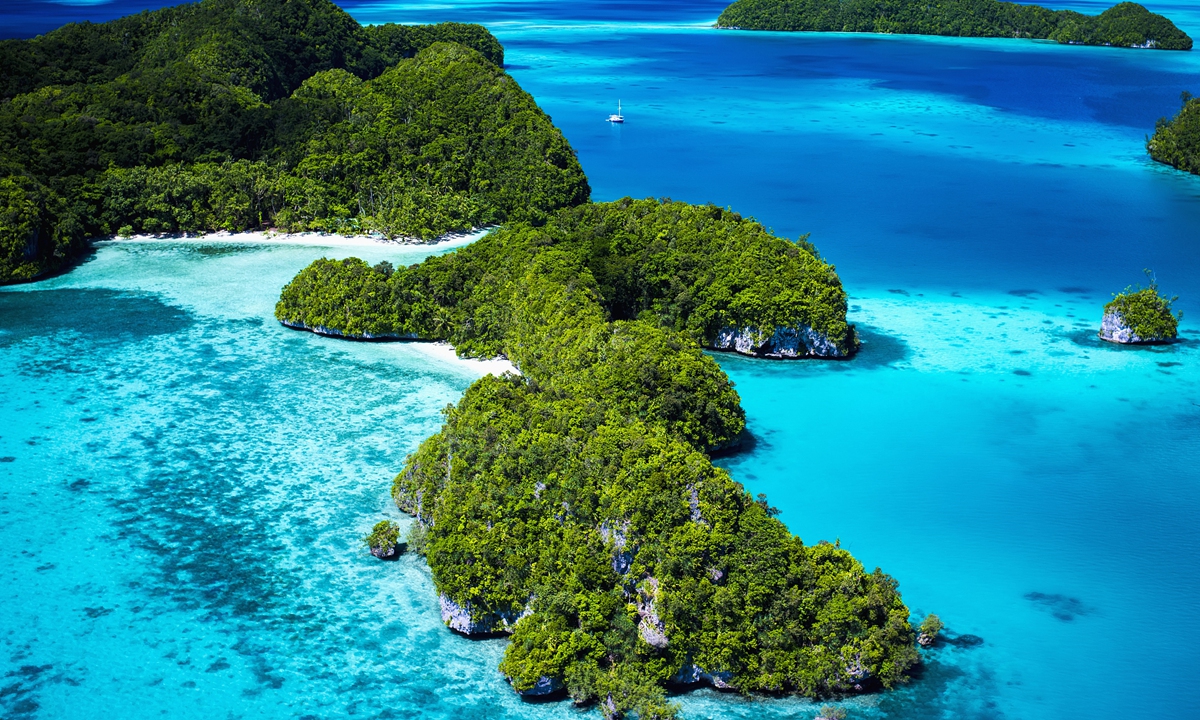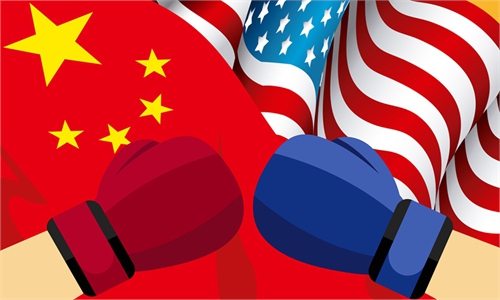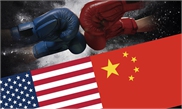Western view of Pacific Islands Forum through China-US competition is narrow-minded

Landscape of Palau. Photo: VCG
Palau's president said it is preparing to leave the Pacific Islands Forum, the region's premier political and economic policy organization founded in 1971. The 18-member forum is mostly made up of small island states along with Australia and New Zealand. AFP reported Friday that Palau's quitting threatens the future of a key grouping in a region where China is vying for influence.Palau has a somewhat special status in the Pacific region. Chinese investors have been behind large building and business projects in Palau, and its tourism industry is closely related to China.
Meanwhile, the US is also actively strengthening its ties with Palau. Former US defense secretary Mark Esper visited the nation last year in a bid to reinforce the US commitment to a long-term relationship with the tiny country, which the US media said highlighted US-China competition.
China respects the decision of the Pacific island states not to get involved in the China-US competition. But Australia and the US want the states to completely align with them in order to maintain their dominance in the Pacific region.
It is very clear Pacific island nations are tired of this. Palau's walking out may be an attempt to avoid more pressure from Washington and Canberra.
If the forum is split, there are two possibilities that might happen. First, these island nations want to impose pressure on Canberra. If the mechanism no longer exists, Canberra's plan to use this platform to raise its own status and work with Washington will fall flat. Second, the new organization is expected to set criteria if Canberra wants to join. This will restrain Canberra from meddling in the affairs of these nations.
Washington and Canberra have been thinking about thwarting Beijing's influence in the region, so they keep hyping up the so-called China threat theory. An undersea internet cable project is viewed as China's grip on information, and the loans to these countries' infrastructure development are interpreted as debt traps.
But Pacific island nations are independent and fully aware that they need China's help, and that it does not threaten their security. Western assistance to these island countries was conditional, but when these countries cannot meet requirements, they began to turn to China for help.
In recent years, Pacific islands countries have seen their international status increase when it comes to global agendas, such as climate change and poverty alleviation. These countries are seeking sovereign equality, and don't accept Western interventionism anymore.
Now, Pacific islands nations are in fact dissatisfied with Western countries, Australia in particular, after seeing the tremendous positive changes China has brought to the region.
The AFP report said that a split in Pacific Islands Forum's ranks could "provide an opening for China to boost its influence with the sparsely populated but strategically important Pacific island nations." Whether or not the Pacific islands' regional body collapses is up to Pacific islands countries.
Indeed, the Pacific Islands Forum is on the brink of imploding after Palau said it is preparing to leave the group. This symbolizes the decline influence of Western countries over these nations. It has nothing to do with China's influence at all. China has no diplomatic relations with Palau. Taking every chance to throw mud at Beijing is a dirty trick often played by Western countries
The Pacific region now is still dominated by Washington. But China is engaging in economic and climate change cooperation and offering aids to boost the region's development - which the US is wary of. By contrast, China is only concerned that particular countries in the region are so-called "diplomatic allies" with Taiwan.
Western assistance to the Pacific island countries has been declining. After China proposed the Belt and Road Initiative, the West was nervous and started to attach more importance to island nations. It only turns to places when China gets involved there.
Washington has always viewed international and regional affairs through the lens of a China-US competition. It could not understand China's spirit of cooperation and its concept of joint development as a major power's responsibilities. Pacific island nations do not like such a US mentality. Nor do they want to be Washington's "vanguards." China's cooperation with these countries stresses economic development and climate change, which fits their interests.
The author is a professor at the Guangdong Research Institute for International Strategies. opinion@globaltimes.com.cn


